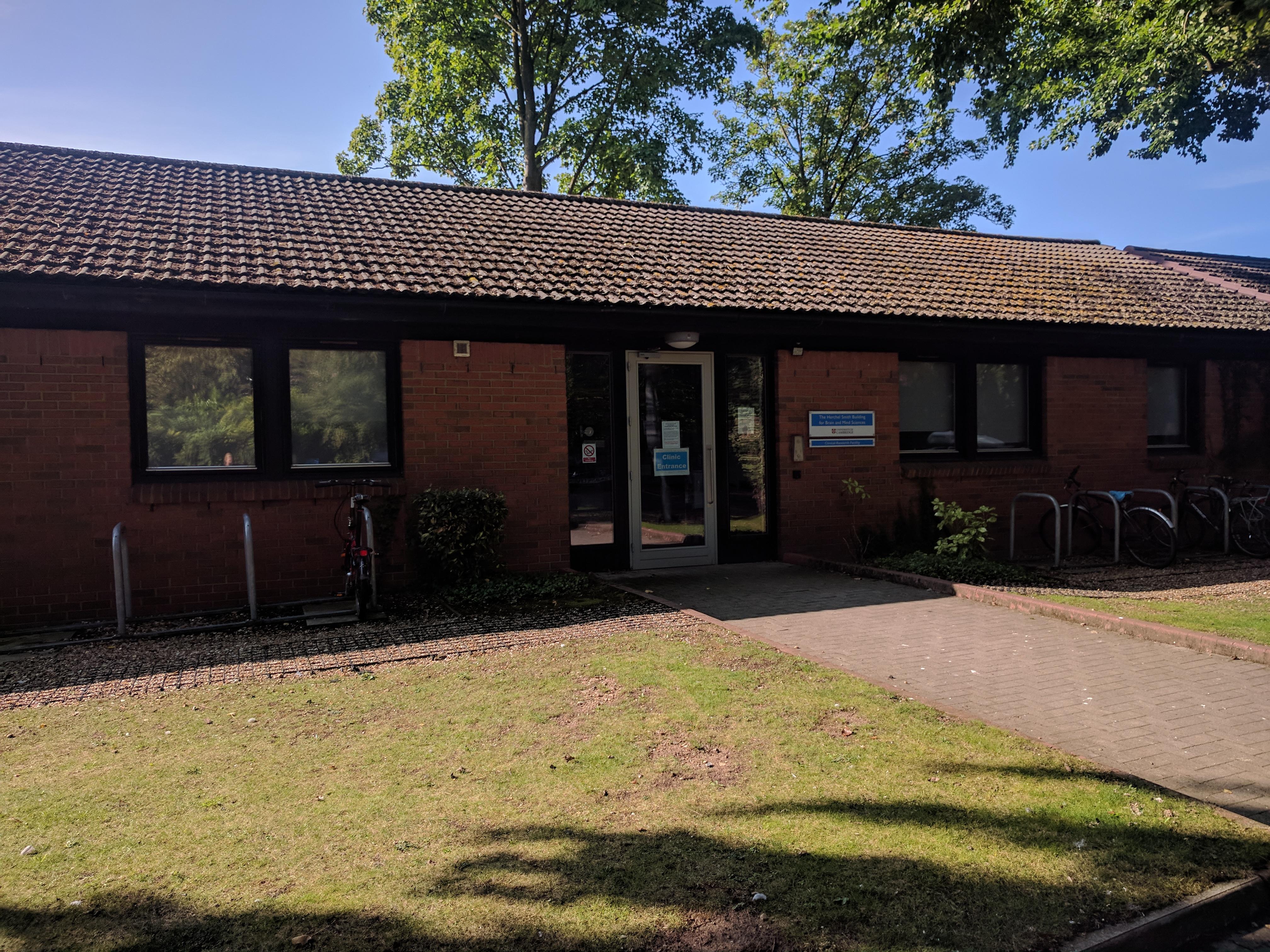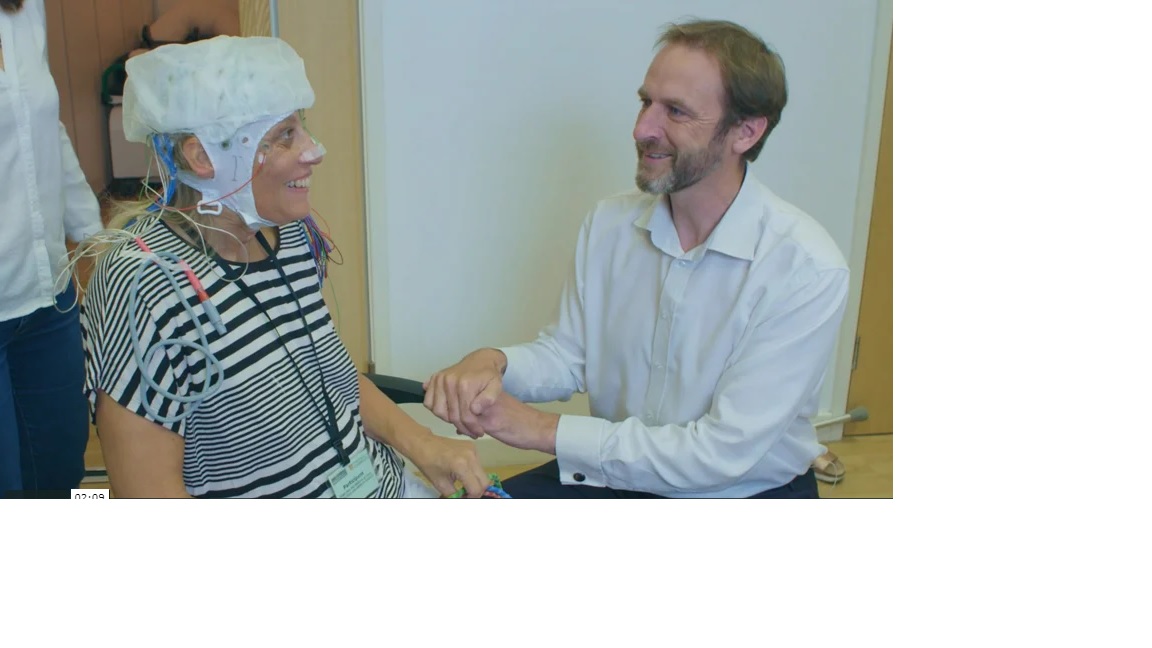
Besides his work as a neuroscientist, Professor James Rowe leads several clinical services for patients with different forms of dementia at the Cambridge University Hospitals NHS Foundation Trust (Addenbrooke’s Hospital in Cambridge).
The Disorders of Movement and Cognition (DMC) clinic
for patients with
- Progressive Supranuclear Palsy (PSP)
- Corticobasal Degeneration (CBD)
This specialist clinic provides support for patients and carers throughout East Anglia who are affected by Progressive Supranuclear Palsy (PSP) and Corticobasal Degeneration (CBD). We also manage rarer neurodegenerative disorders that bring a challenging combination of movement disorders ("parkinsonism") and cognitive impairments (with or without dementia) or psychiatric symptoms (personality or behavioural change).
We believe that there is much that can be done to help patients and carers, from accurate early diagnosis, timely identification and treatment for a wide variety of symptoms at different stages of the illness (including drug treatments, but also speech and language, physiotherapy and occupational therapies), and advice on social, legal and, financial aspects of life with PSP and CBD. There is no "one-care-fits-all" for these complex illnesses, and so we provide an individualized service.
We also offer opportunities to take part in research into these illnesses, although this is not a pre-condition of coming to clinic. To see what our patients and carers see about us, you can see the summary of our recent audit here.
Contact: james.rowe[at]mrc-cbu.cam.ac.uk (general enquiries) or james.rowe[at]nhs.net (if any patient information)
Secretary: 01223 760696
Location Map: Herchel Smith Building
There is free patient parking next to clinic.
The “Early-onset Dementia” (EDC) or Frontotemporal Dementia Clinic
for patients with
- Frontotemporal dementia, language and behavioural variants
Patients and families affected by Frontotemporal Dementia (FTD, or Pick’s disease) require comprehensive and continuing care. Frontotemporal Dementia includes a broad “family” of diseases with distinct symptoms and complications, each requiring specialist assessment and individualized management. The family of FTDs includes the behavioural variant of FTD (bvFTD) and the primary progressive aphasias (semantic dementia, progressive non-fluent aphasia, and logopenic aphasia). We also support people affected by primary apraxia of speech.
Referrals are welcome from General Practitioners, Neurologists, Psychiatrists, specialist dementia nurses or anyone involved in supporting a patient of family affected by frontotemporal dementia or related disorders. Appointments typically last 90 minutes, including assessment by the doctor, memory tests, and any simple investigations like blood tests.
To make a NHS referral, please write to Professor James B. Rowe:
Professor of Cognitive Neurology
Cambridge University Hospitals Trust
Department of Clinical Neurosciences
Herchel Smith Building, Cambridge Biomedical Campus, CB2 0SZ
or email: teresa.carman[at]nhs.net.
To discuss non-NHS referrals, please contact Professor James B. Rowe on james.rowe[at]nhs.net or 01223 760696.
Cambridge Memory Clinic
The Cambridge Memory Clinic is one of the most longstanding memory clinics in the UK. Our internationally recognized team of consultants represents a close partnership between the Cambridge University Hospitals NHS Trust (Consultants Dr Jerry Brown, Dr Andrew Graham, Dr Claire Galton) and the Cambridge University Clinical School Department of Neurology (Professor James B. Rowe, Professor in Cognitive Neurology; Professor Giovanna Mallucci) and Department of Psychiatry (Professor John T. O’Brien, Professor of Old Age Psychiatry).
We provide expert assessment and management for a wide range of memory and cognitive disorders, whether dues to neurodegeneration (e.g., Alzheimer’s disease (AD), Mild Cognitive Impairment (MCI), Frontotemoral dementia (FTD), Dementia with Lewy Bodies (DLB) and more), vascular dementia, encephalitis (including immune mediated encephalitis), late onset leucodystrophy, Normal Pressure hydrocephalus (NPH), and memory problems related to depression, anxiety, and epilepsy. We are supported by a great team of neuropsychologists, specialist nurses, and neuroradiologists with state of the art diagnostics and therapeutics for memory disorders.
The clinic also leads in the training of specialists in Dementia, including junior doctors and specialist nurses in neurology, psychiatry, medicine for the elderly and other specialties; clinical training of SpRs and clinical research fellows; and the famous Cambridge Dementia Course.
As part of the NIHR Cambridge Biomedical Research Centre "Dementia and neurodegenerative disorders" theme, the clinic is a focal point for leading international clinical research into the causes, mechanisms and treatments for dementia.
Secretary & referrals: teresa.carman[at]nhs.net
Contact: Lucy Bowns lb648[at]medschl.cam.ac.uk (general enquiries)
Location Map: Herchel Smith Building
Free patient parking next to clinic. The clinic takes place every week.
Other clinics
For clinics related to Parkinson's disease, Huntington's disease, or dementia with Lewy Bodies, have a look here.

